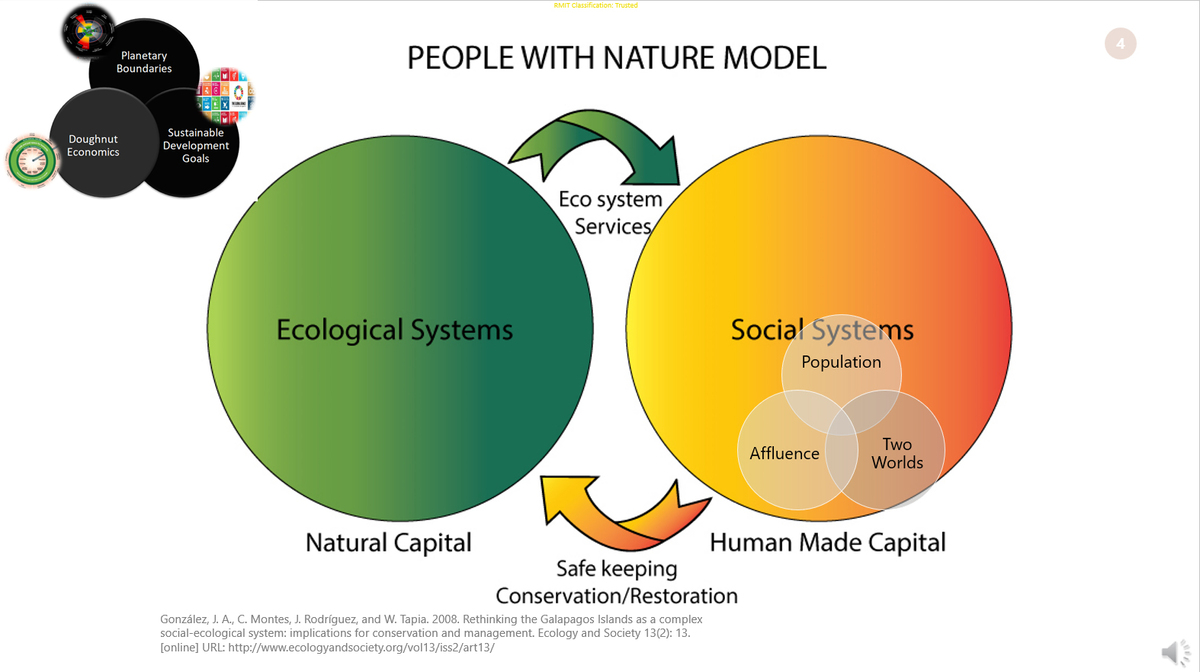
Doughnuts for fashion! Semester 2 2022
Offer solutions to the social and environmental problems of merchandising garments

Students undertaking The Global Impacts of Fashion Merchandise course (part of The Associate Degree of Fashion & Textile Merchandising AD013) at RMIT University, were asked to identify problems throughout the product life cycle of a garment that contributed to people living outside the "Safe and Just space for Humanity" (Raworth) and also affecting the Planetary Boundaries ( Rockström et al).
The course was run as six, all day intensive workshops, which were divided into three distinct phases that covered (i) context, (ii) frameworks, and (iii) solutions.
CONTEXT
The activities of the fashion industry were contextualised within the three human created pressure points of ;
- The desire for affluence (Consumer society)
- Global population (Rapidly growing)
- The “Two worlds” (Developed and developing)
FRAMEWORKS
The Planetary Boundaries (Rockström et al), Sustainable Development Goals (United Nations) and The Doughnut Economy (Raworth) were offered as the frameworks through which solutions for the fashion industry could be proffered.


SOLUTIONS
Students mapped the impact of activities of various fashion brands against elements of the frameworks.
As part of the students preparation for a series of “Fashion solution” essay’s, they were required to create an infographic that represented one stage in the product life cycle of a garment, highlighting a particular problem and offering possible solutions.
These are the results below:
Share
Share
-
Member


Carolina Escobar-Tello
Lisbon, Portugal
Carolina leads DEAL's work on Schools & Education by co-creating with students, life-long learners, educators, curriculum designers and educational institutions an influential dynamic network of transformative educational practice that contributes to the global-wider movement of regenerative change. Carolina is a curious transdisciplinary educator, researcher, facilitator and grass-roots designer with seasoned experience working across industrial, product, service and systems design including the global ‘North’ and ‘South’ hemispheres. Biocentric sustainability, design for happiness & wellbeing, social innovation, pluriverse and systemic thinking shape her mindset as a pro-active agent of change. She has lectured extensively and her work has been published in journals and international peer reviewed conference proceedings. She is currently also an Academic Visiting Fellow at the School of Design and Creative Arts, Loughborough University, UK.
-
Member

Nancy Sanquist
-
Member

Jordan Hodgson
Sydney, New South Wales, Australia

















